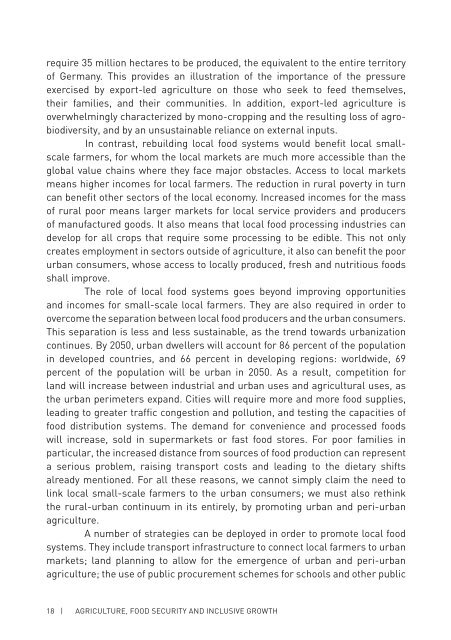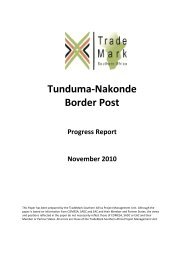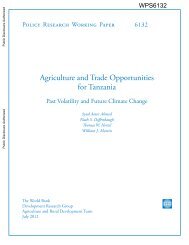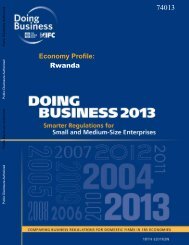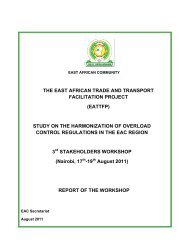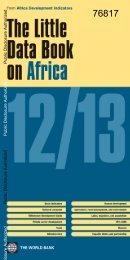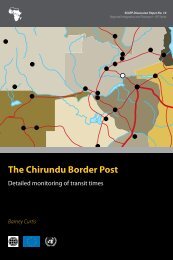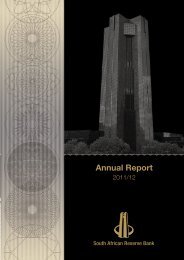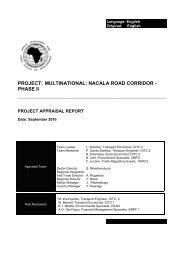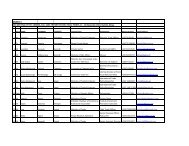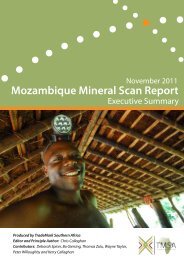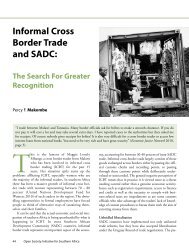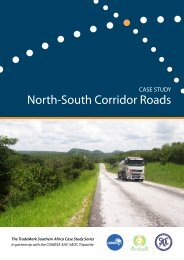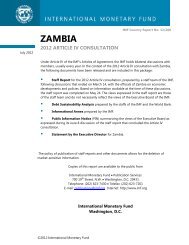Agriculture, Food Security and Inclusive Growth - SID Netherlands ...
Agriculture, Food Security and Inclusive Growth - SID Netherlands ...
Agriculture, Food Security and Inclusive Growth - SID Netherlands ...
You also want an ePaper? Increase the reach of your titles
YUMPU automatically turns print PDFs into web optimized ePapers that Google loves.
equire 35 million hectares to be produced, the equivalent to the entire territory<br />
of Germany. This provides an illustration of the importance of the pressure<br />
exercised by export-led agriculture on those who seek to feed themselves,<br />
their families, <strong>and</strong> their communities. In addition, export-led agriculture is<br />
overwhelmingly characterized by mono-cropping <strong>and</strong> the resulting loss of agrobiodiversity,<br />
<strong>and</strong> by an unsustainable reliance on external inputs.<br />
In contrast, rebuilding local food systems would benefit local smallscale<br />
farmers, for whom the local markets are much more accessible than the<br />
global value chains where they face major obstacles. Access to local markets<br />
means higher incomes for local farmers. The reduction in rural poverty in turn<br />
can benefit other sectors of the local economy. Increased incomes for the mass<br />
of rural poor means larger markets for local service providers <strong>and</strong> producers<br />
of manufactured goods. It also means that local food processing industries can<br />
develop for all crops that require some processing to be edible. This not only<br />
creates employment in sectors outside of agriculture, it also can benefit the poor<br />
urban consumers, whose access to locally produced, fresh <strong>and</strong> nutritious foods<br />
shall improve.<br />
The role of local food systems goes beyond improving opportunities<br />
<strong>and</strong> incomes for small-scale local farmers. They are also required in order to<br />
overcome the separation between local food producers <strong>and</strong> the urban consumers.<br />
This separation is less <strong>and</strong> less sustainable, as the trend towards urbanization<br />
continues. By 2050, urban dwellers will account for 86 percent of the population<br />
in developed countries, <strong>and</strong> 66 percent in developing regions: worldwide, 69<br />
percent of the population will be urban in 2050. As a result, competition for<br />
l<strong>and</strong> will increase between industrial <strong>and</strong> urban uses <strong>and</strong> agricultural uses, as<br />
the urban perimeters exp<strong>and</strong>. Cities will require more <strong>and</strong> more food supplies,<br />
leading to greater traffic congestion <strong>and</strong> pollution, <strong>and</strong> testing the capacities of<br />
food distribution systems. The dem<strong>and</strong> for convenience <strong>and</strong> processed foods<br />
will increase, sold in supermarkets or fast food stores. For poor families in<br />
particular, the increased distance from sources of food production can represent<br />
a serious problem, raising transport costs <strong>and</strong> leading to the dietary shifts<br />
already mentioned. For all these reasons, we cannot simply claim the need to<br />
link local small-scale farmers to the urban consumers; we must also rethink<br />
the rural-urban continuum in its entirely, by promoting urban <strong>and</strong> peri-urban<br />
agriculture.<br />
A number of strategies can be deployed in order to promote local food<br />
systems. They include transport infrastructure to connect local farmers to urban<br />
markets; l<strong>and</strong> planning to allow for the emergence of urban <strong>and</strong> peri-urban<br />
agriculture; the use of public procurement schemes for schools <strong>and</strong> other public<br />
18 | AGRICULTURE, FOOD SECURITY AND INCLUSIVE GROWTH


